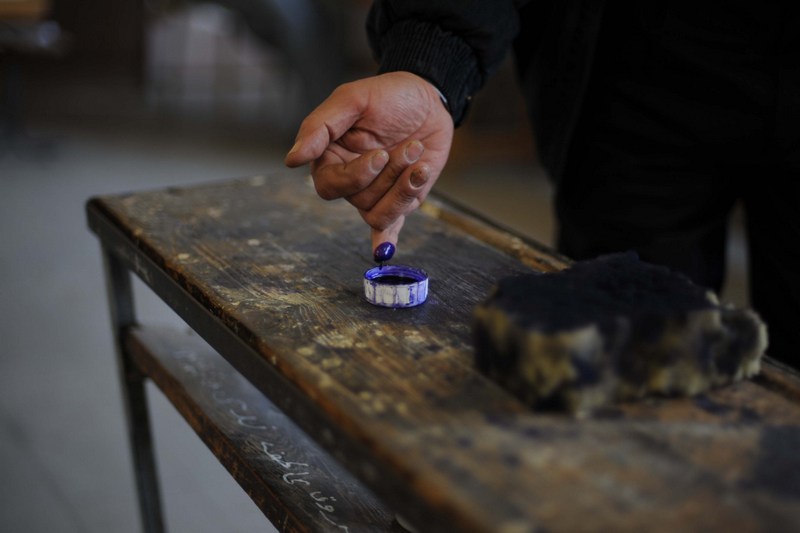CAIRO: Thousands of low-ranking policemen started Monday an open-ended strike in front of the Ministry of Interior and security directorates across the country demanding better working conditions and the removal of current Interior Minister Mansour El-Essawy.
Protesters are also demanding that he be replaced with a civilian minister.
“Our open strike will continue in all governorates until all our demands are met,” member of the Low-ranking Police Officers Coalition, Mohamed Yousef told Daily News Egypt Monday.
Yousef said that they demanded a civilian minister to guarantee that he will not be biased towards police officers against lower ranking ones.
“There is discrimination against us; so an outsider minister will not favor police officers over us,” he said.
They also demanded that the ministry’s top officials, appointed by former minister Habib El-Adly, step down as they prevent any attempts to reform the ministry, according to Yousef.
“Just as many claim that officials surrounding Mubarak never gave him the real image of what is really going on, we believe that top officials appointed by El-Adly are doing the same with El-Essawy,” he added.
The low-ranking policemen also demand better work conditions.
Labeled in Egypt as “omnaa shorta,” the low-ranking policemen enter the force with no prospect of promotion to officer status. They are not graduates of the police academy but receive different and shorter training.
“Once we reach the age of 45, we are denied any bonuses and we are not allowed to move up in our career scale, so we need to change this … system,” he added.
Thousands of low-ranking policemen were protesting in front of the ministry headquarters in Downtown Cairo, effectively blocking the road.
“I announce on behalf of low-ranking policemen in Sohag, that if the ministry doesn’t give us our rights we will not secure the parliamentary elections,” policemen at Sohag governorate who only identified himself as Ahmed told DNE.
“There is tension between low-ranking policemen and the ministry because of the treatment they get by the police officers. Therefore, we are calling on SCAF to interfere,” said policeman Ayman Taha.
“The money deducted from our salaries is given to the police officers instead of being [used in something] beneficial for us. Therefore, the general coalition announces the beginning of the real revolution in the Ministry of Interior,” he added.
The Ministry of Interior issued a statement Monday calling on the striking policemen to end their strike “and to be up to their responsibilities to secure the country.”
“The minister met previously with the protesters and achieved most of their financial demands before, which was later announced by the organizers of the strikes,” the statement explained, adding that the ministry does not spare any effort to achieve the demands of the low-ranking policemen in accordance with the state’s available financial abilities during this sensitive time.
The policemen denied media reports that they were suspended from service, and showed their IDs to DNE.
Among their demands was ending their referral to military courts.
"El-Essawy ended referrals to military courts only in cases of procedural violations, for example, for not wearing the uniform properly," Yousef explained, adding that military trials still apply in other cases.
"For example, I cannot be absent from work for emergency cases without prior permission from my boss. If I do not take permission, I can be sent to a military court," he said.
According to the police law, the Ministry of Interior is a civilian body, which means that its members should be governed in accordance with civilian laws.
Member of the reformist group "Police Officers but Honorable" Lieutenant Colonel Mohamed Mahfouz told Daily News Egypt that military trials for low ranking policemen is a sort of discrimination against them.
"There is no syndicate to represent them, which subjected them to abuse and pressure with no return or benefits," he said.
Protesters also demanded establishing a pension fund.
"We receive only LE 15,000 as end-of-service pay, given to us in three stages, which means nothing for us, especially by the time we retire," Yousef said.
A better medical care system was the protesters’ final demand. They wanted one or two hospitals allocated for their treatment. They are denied access to police hospitals, although they were promised treatment there after a similar protest last February.
"Every month the ministry deducts LE 12 for medical care in government hospitals which is not enough for us," Yousef said. –Additional reporting by Omnia Al Desoukie and Heba Hesham.

